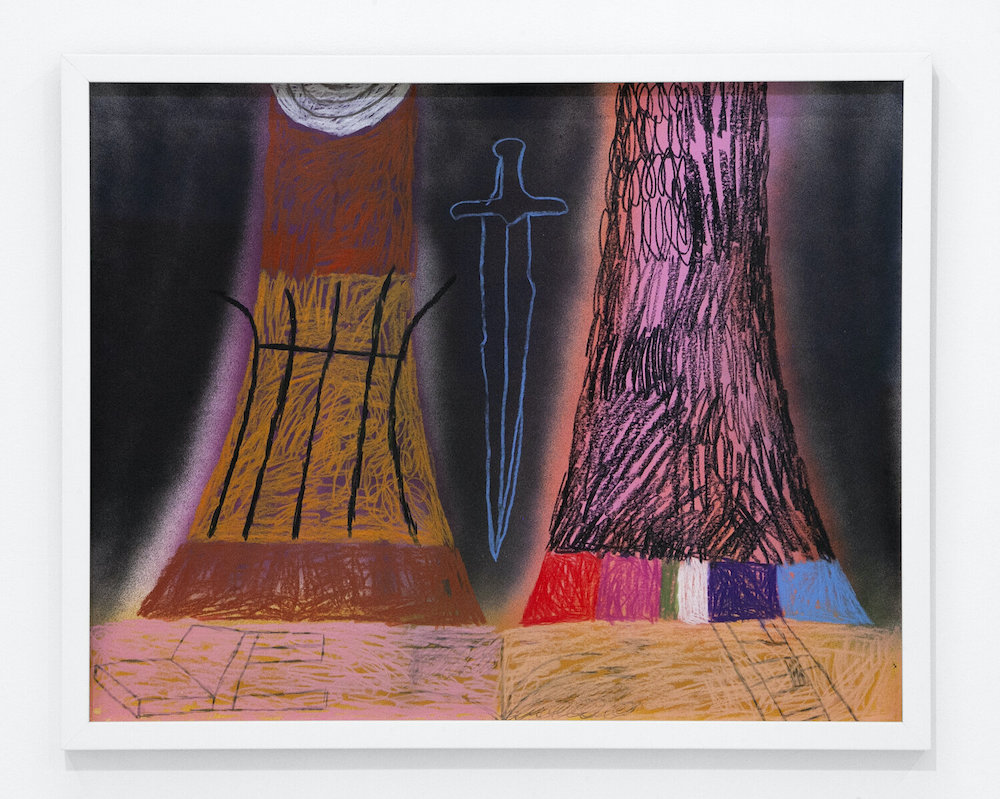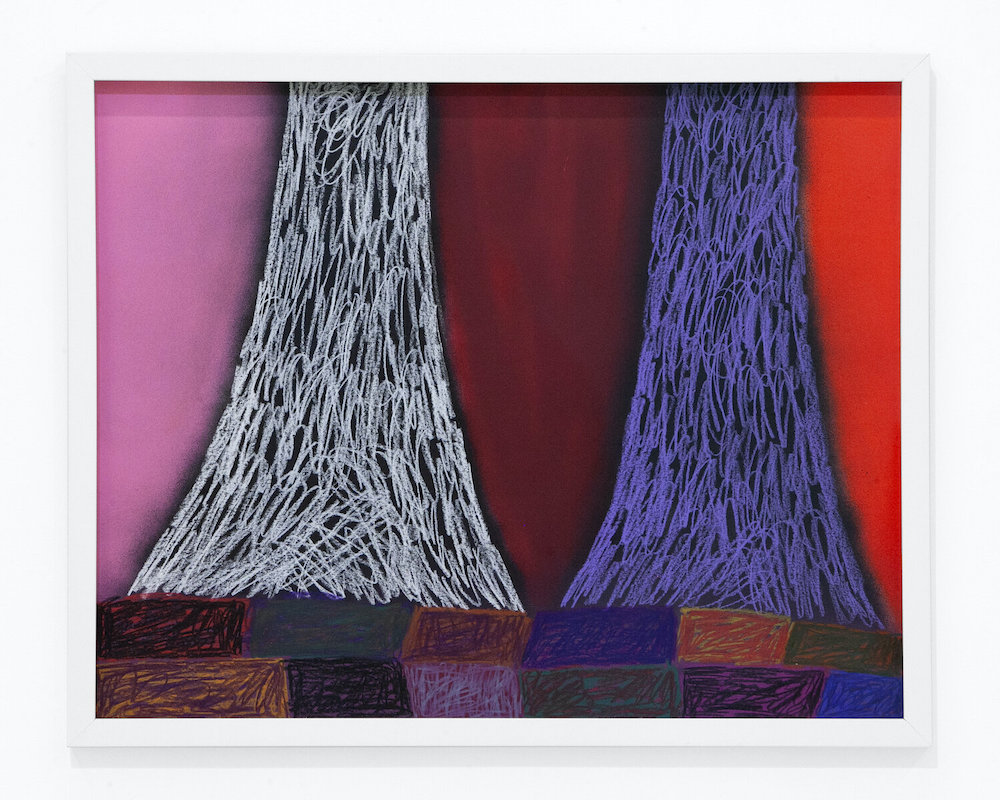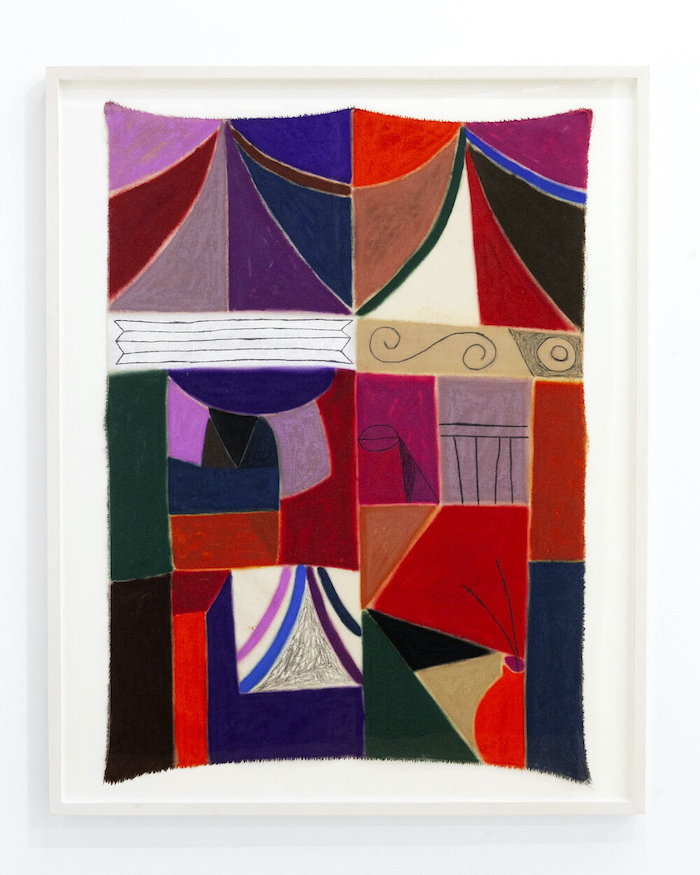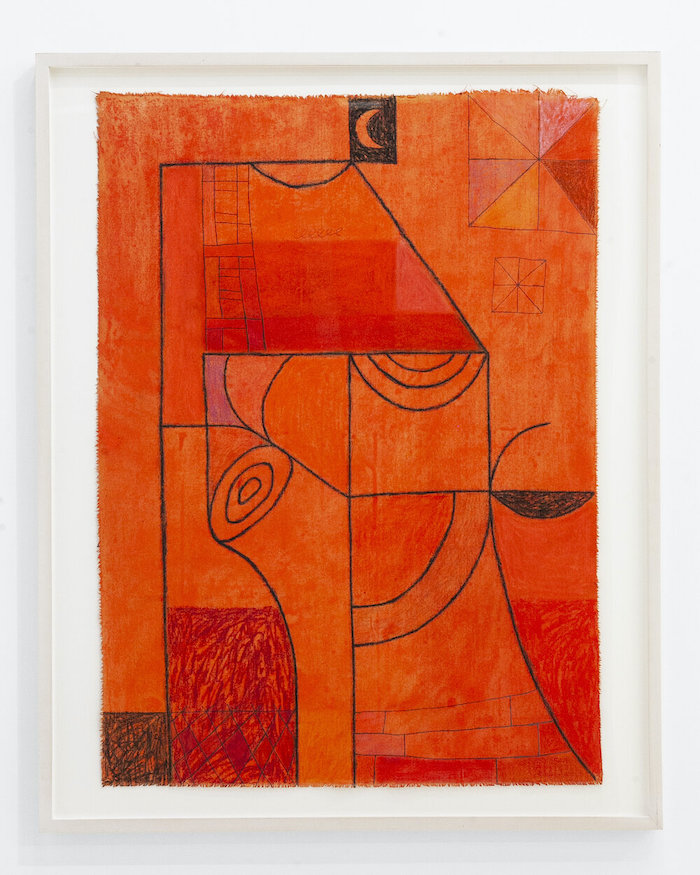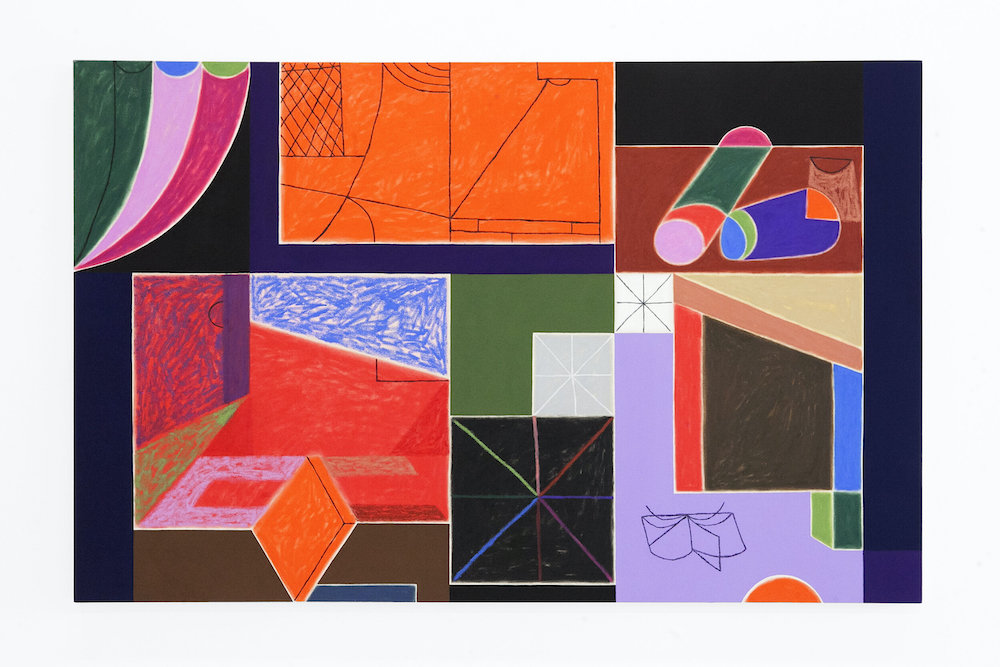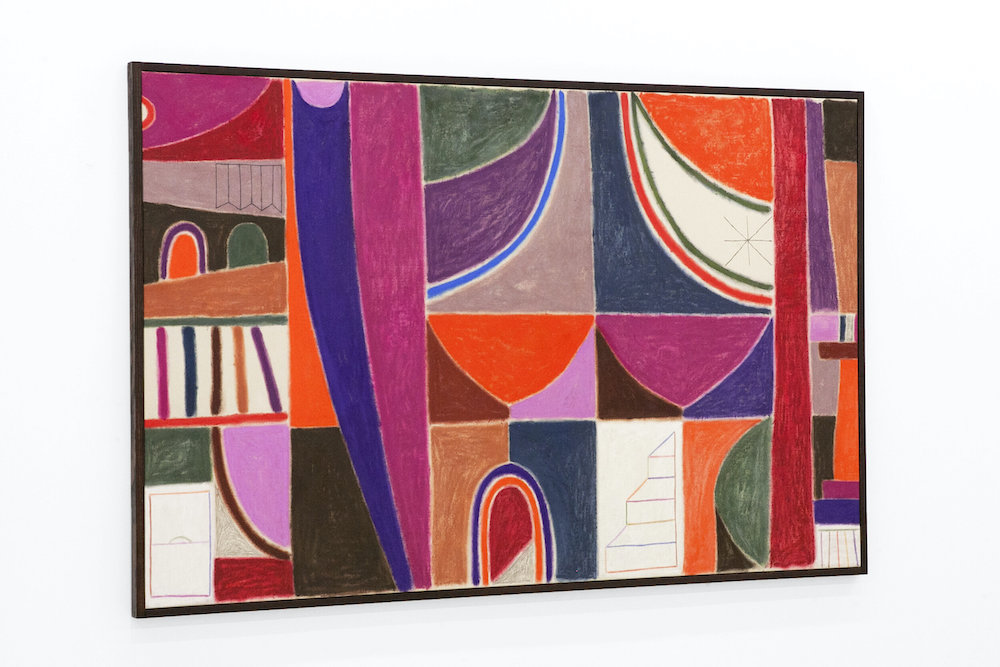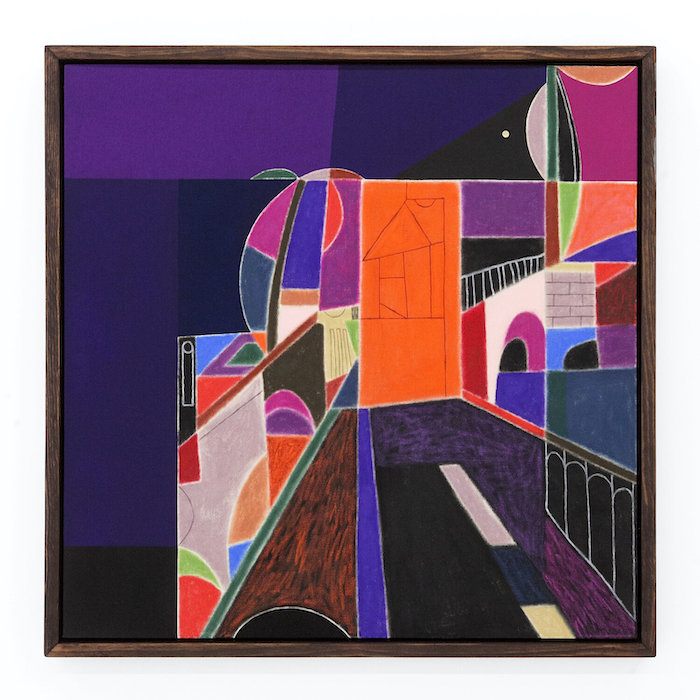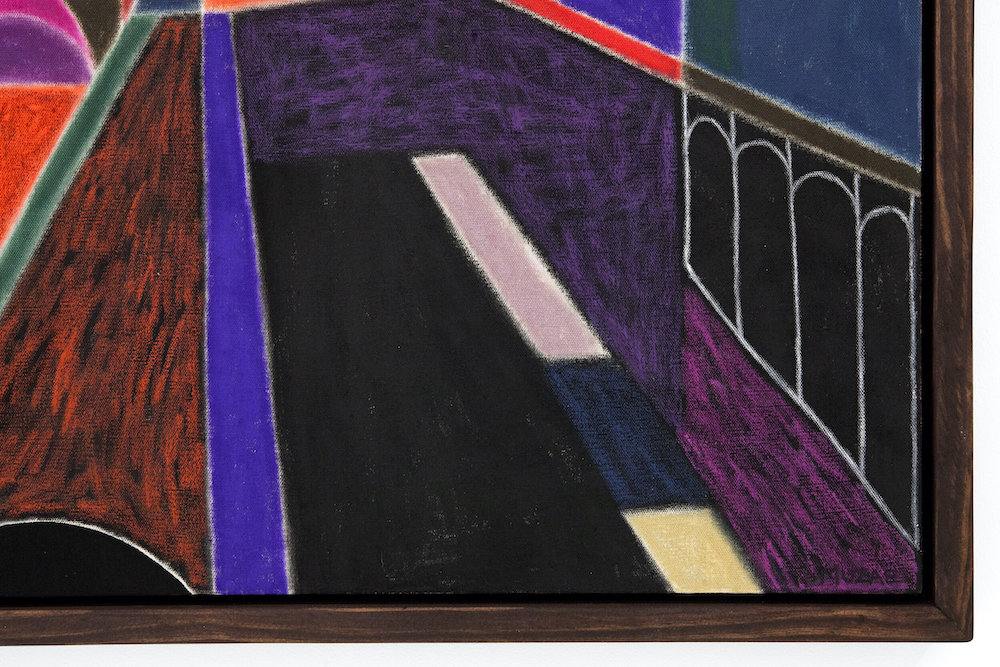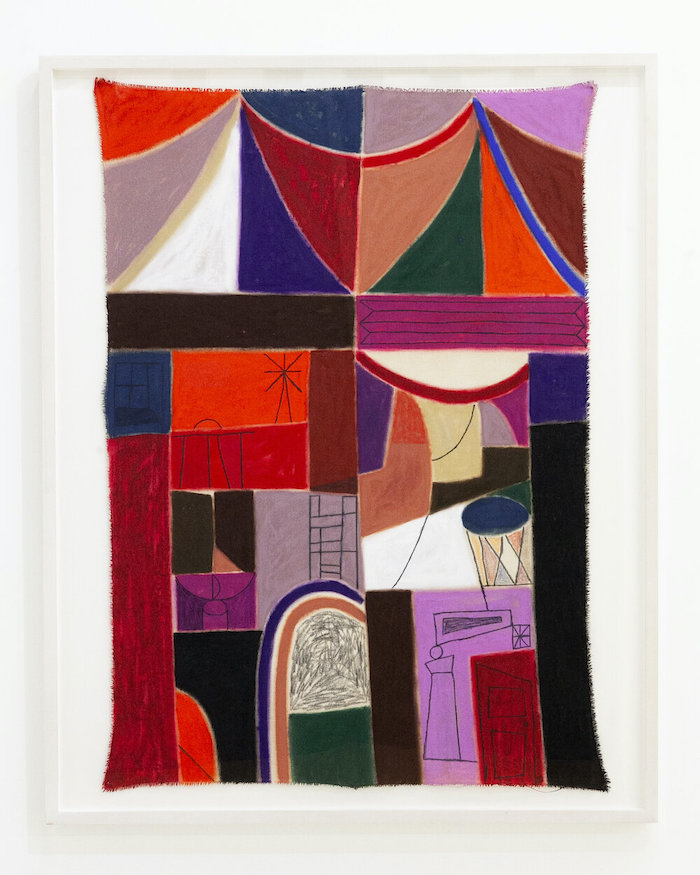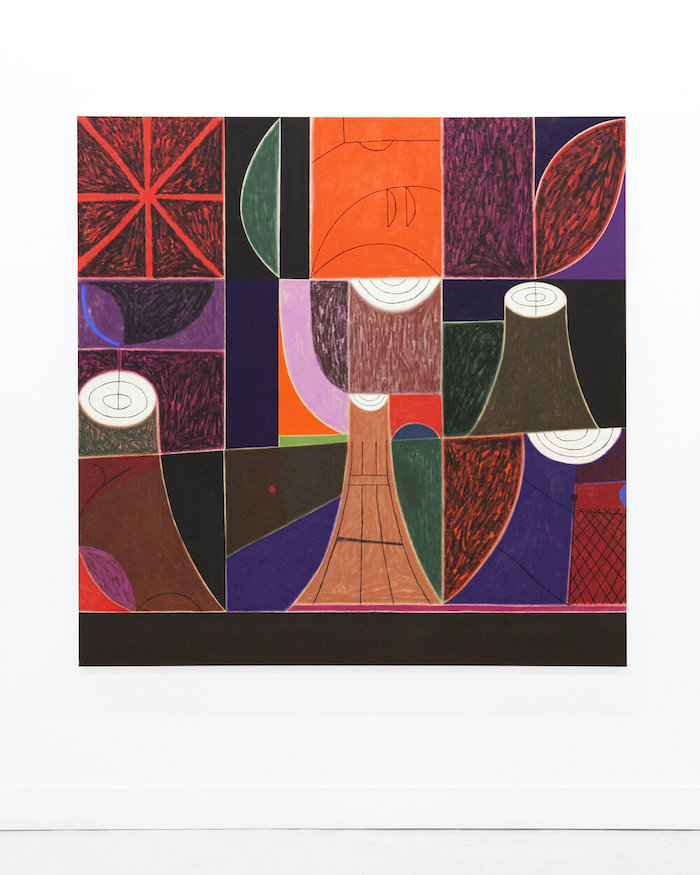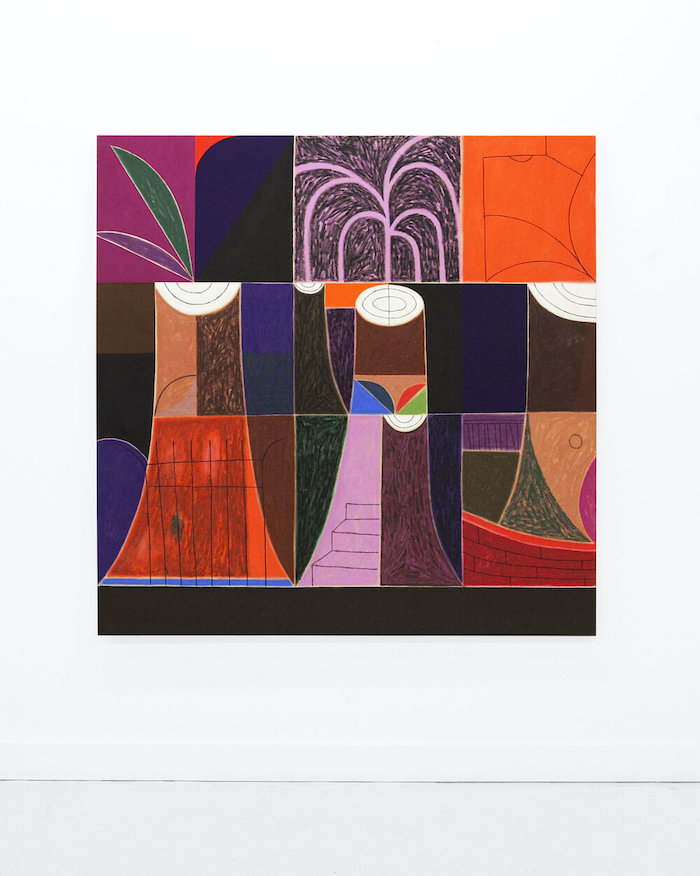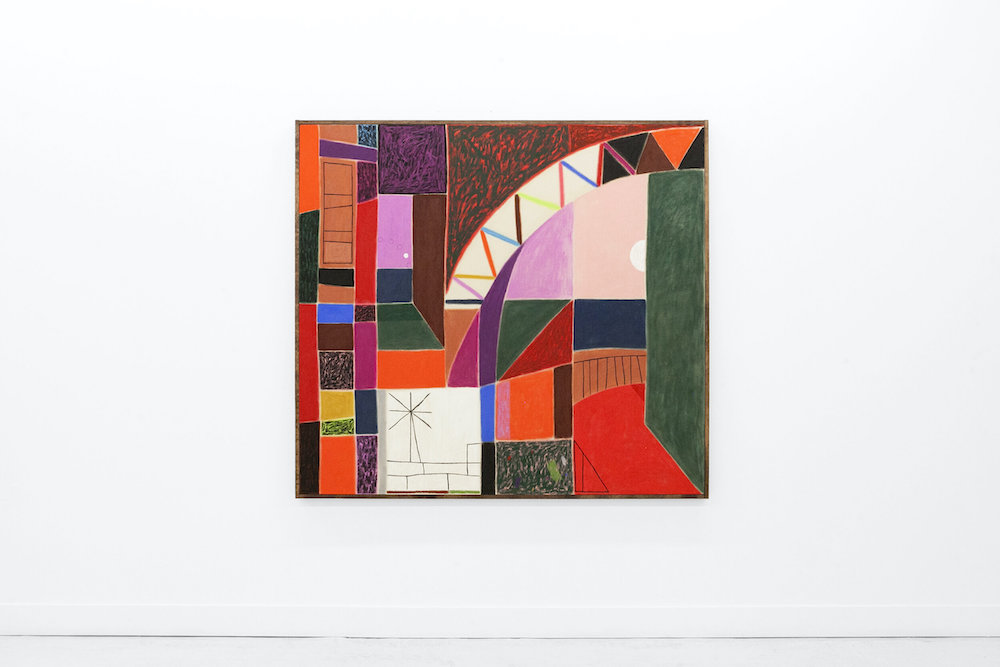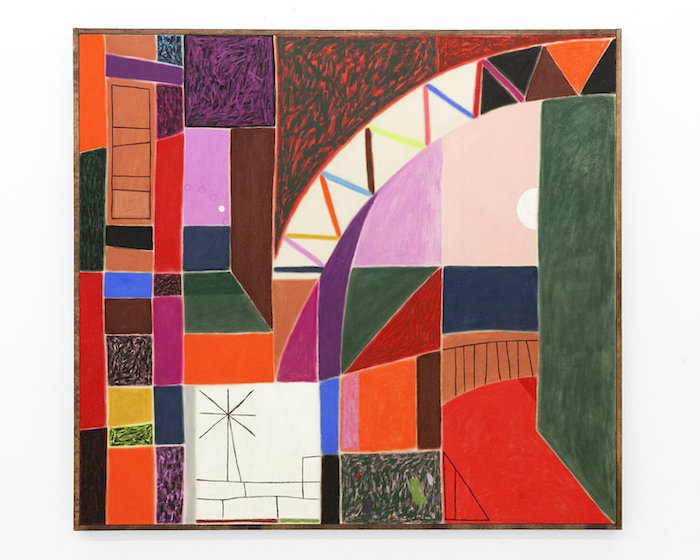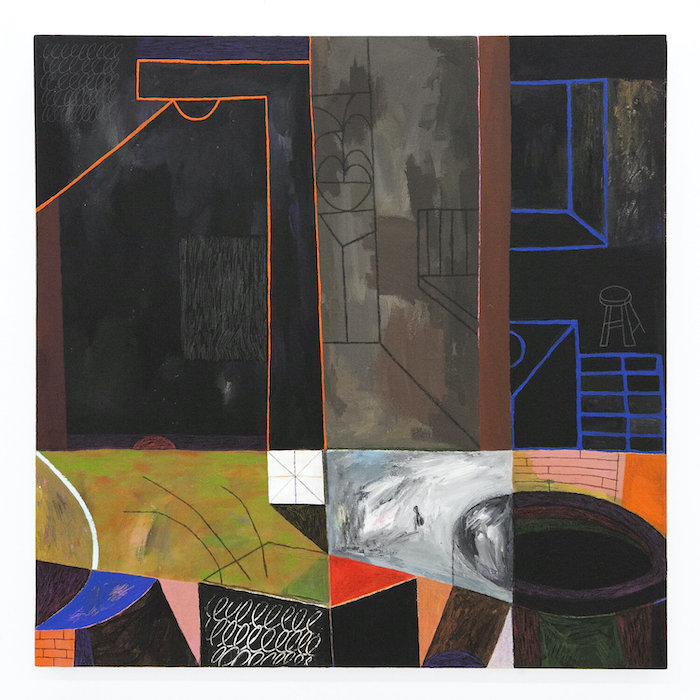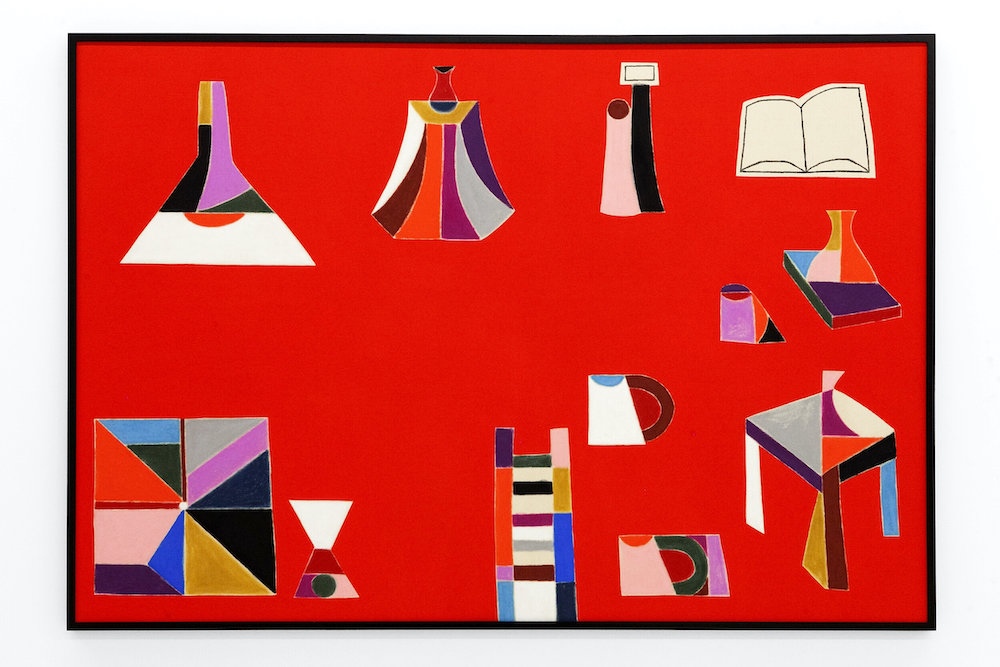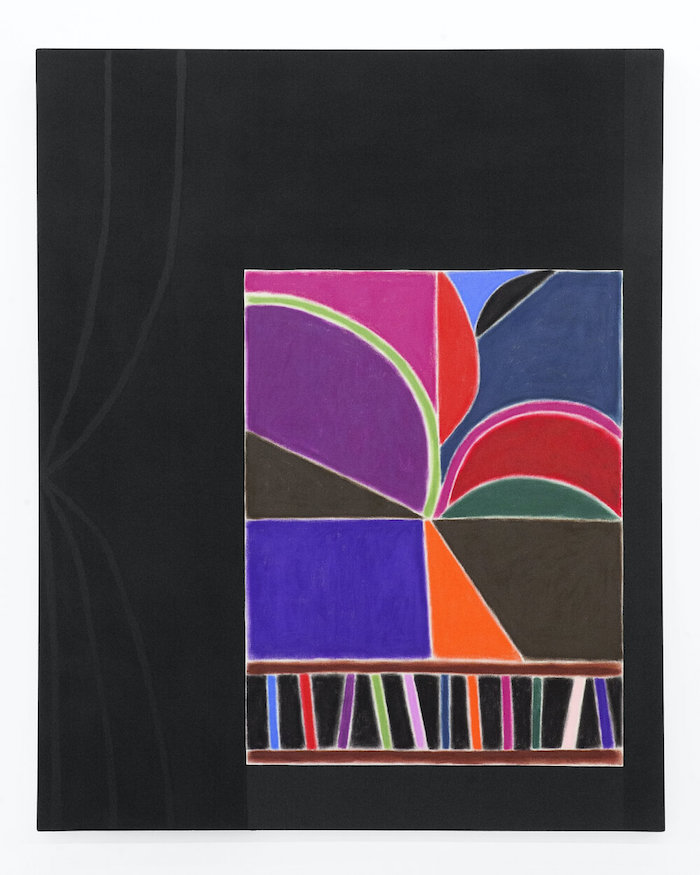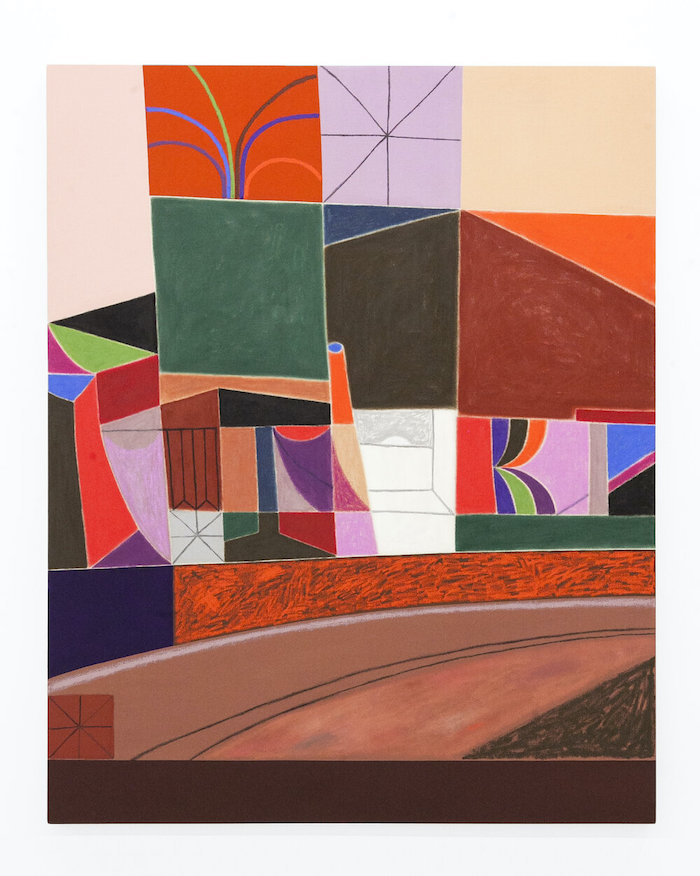In a summer where we have been speaking at length about the power that figurative art plays in our political landscape, Muzae Sesay’s stunning and complex pastel and wax pencil works are a potent reminder of the persuasive punch of abstraction in contemporary conversations regarding race and power. Sesay’s concurrent solo shows, The Purest Air I've Ever Known and Freetown Veranda, which open by appointment on August 15 at pt2 Gallery in Oakland, immediately frees the mind as color and shape dive deep into the horizon or sink into subconscious, squinting at the sun. They leave a mark. “I am explaining that buying a motorcycle is to find new work when really it is to liberate myself and find freedom,” Sesay says about the work, “I am looking out onto the city thinking of how to leave my mark. I am flourishing, rolling around the grassy fields of my mind.”
Admittedly yet to visit his ancestral Sierra Leone, the influence is gripping, setting Sesay’s compass, as he quotes James Baldwin: “Perhaps home is not a place but simply an irrevocable condition.” He points out that his work in this show is based on the perspective of the dreamer, once about the aspiration of coming to America for a better life, and yet in this setting, perhaps the dreamer looks back to Sierra Leone with a longing. Such inner dialogue, which has grown increasingly sharper and realistic for many in the latter half of this decade, considers how to celebrate one’s traditions and lineages while, at the same time, reeducating one’s self in the new era of American politics. In the form of these abstract compositions, replete with rooms, doors and loose architectural forms, escape beckons, but are often blocked by internal barriers in structure that make access difficult to navigate. Beyond these doors could be paradise—or strife, and they invite intriguing, challenging questions.
“In many ways, Sierra Leone was taken from me,” Sesay says. “Conflicting narratives aim to define my identity, my social perception, my self-esteem, and my pride; and thus, an investigation ensues.” These works feel like a celebration as well as a personal exploration of self in a time when the self is often portrayed more literally in the art world. These are paintings of the mind at work, a quest for balance, the desire to escape. And to understand where we go next. —Evan Pricco




